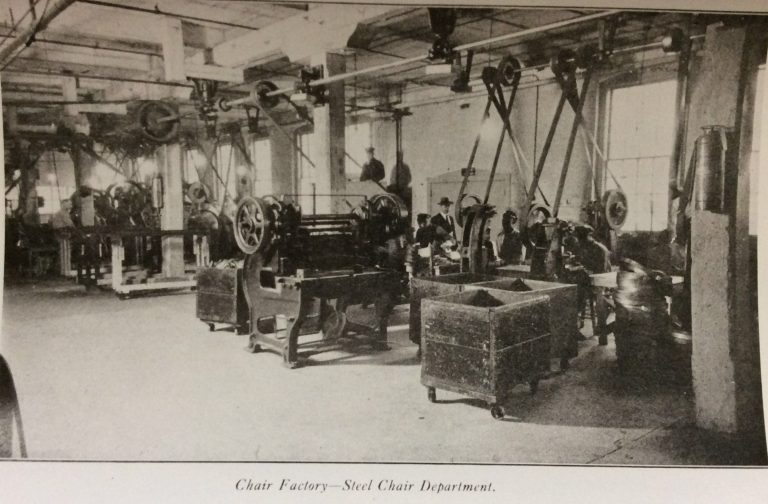The selection of Jackson for the site of the Michigan State Prison in 1837 was a decision based on economics. Several Jackson businessmen had lobbied the State Legislature for the prison because they were seeking a source of cheap labor for their factories. The Jackson Wagon Company soon built a factory on the prison grounds, making it easy for guards to escort inmates to and from work. Inmates were paid pennies per day and worked under a quota system. Inmates who didn’t make their quotas lost privileges or were severely punished. Early factories at Jackson produced auto parts, harness and tack, binder twine, tombstones, cigars, clay tile, furniture, overalls, shoes, farm equipment, carpet, barrels, locomotive boilers, brushes, brooms, and of course, license plates.
By 1922 the State of Michigan began to operate its own factories and shops due to objections by unions that inmates were taking jobs away and working for slave wages. The intent was to make the prison self-supporting. Jackson Prison even had its own concrete block and brick factory to produce material for prison expansion projects, ironically forcing inmates to manufacture the materials used to confine them.
Prison farms produced food to feed hungry inmates. This included canned fruits and vegetables, wine and cider, with the surplus being sold to the public up until the late 1970s. The Great Depression years of the 1930s were a decade of change for Michigan prisons. The advent of Civil Service rules ended the patronage system for wardens. The Hawes-Cooper Act prohibited the sale of prison-made products in interstate commerce, and the Michigan Legislature adopted a bill limiting the sale of prison products to state institutions and tax-supported agencies only. By the 1980s, Michigan State Industries was only allowed to sell its products to nonprofit organizations as well as federal, state and local governments. MSI produced textiles, road signs, office furniture, file cabinets, cleaning supplies, work clothing and uniforms.



